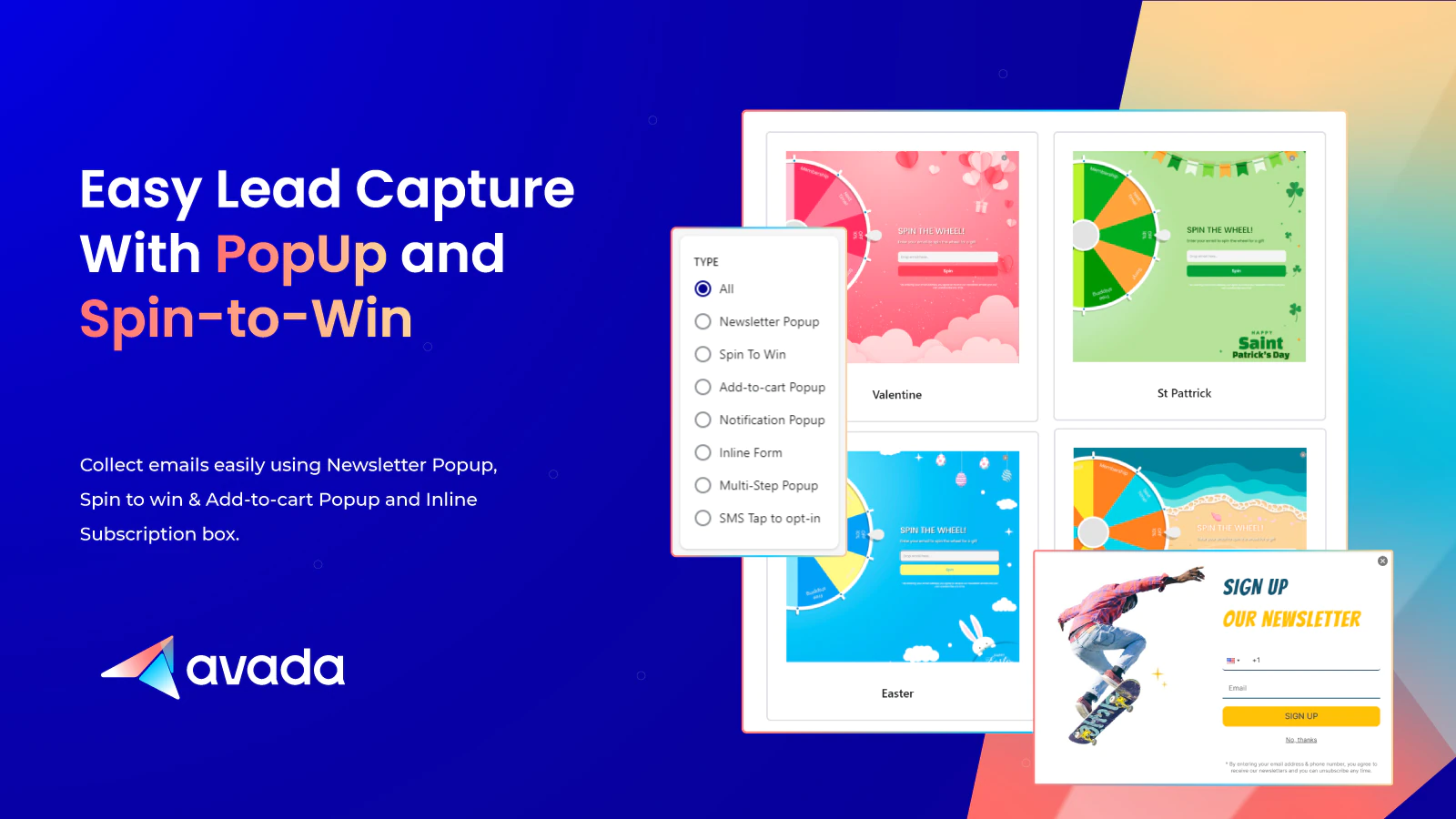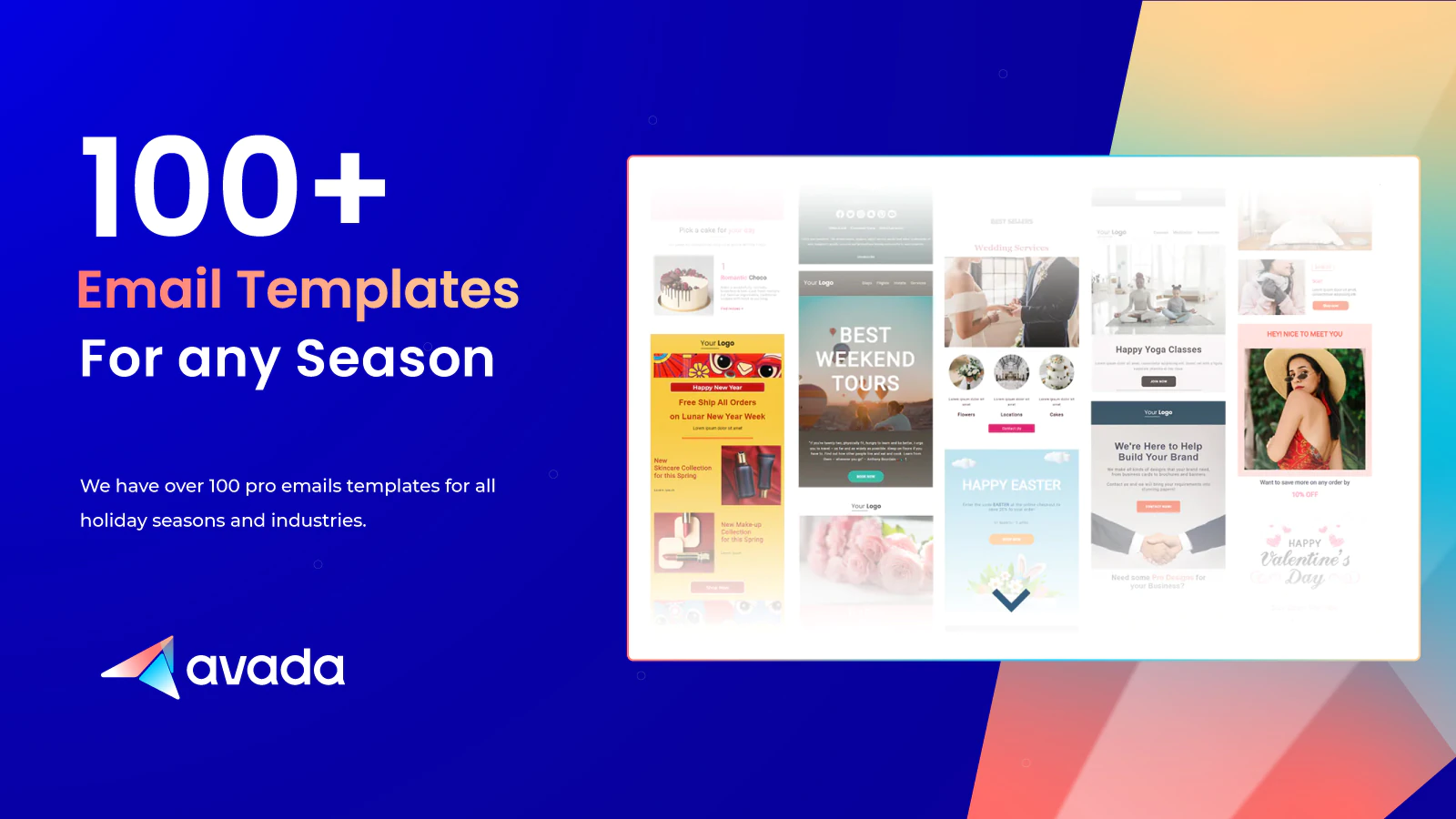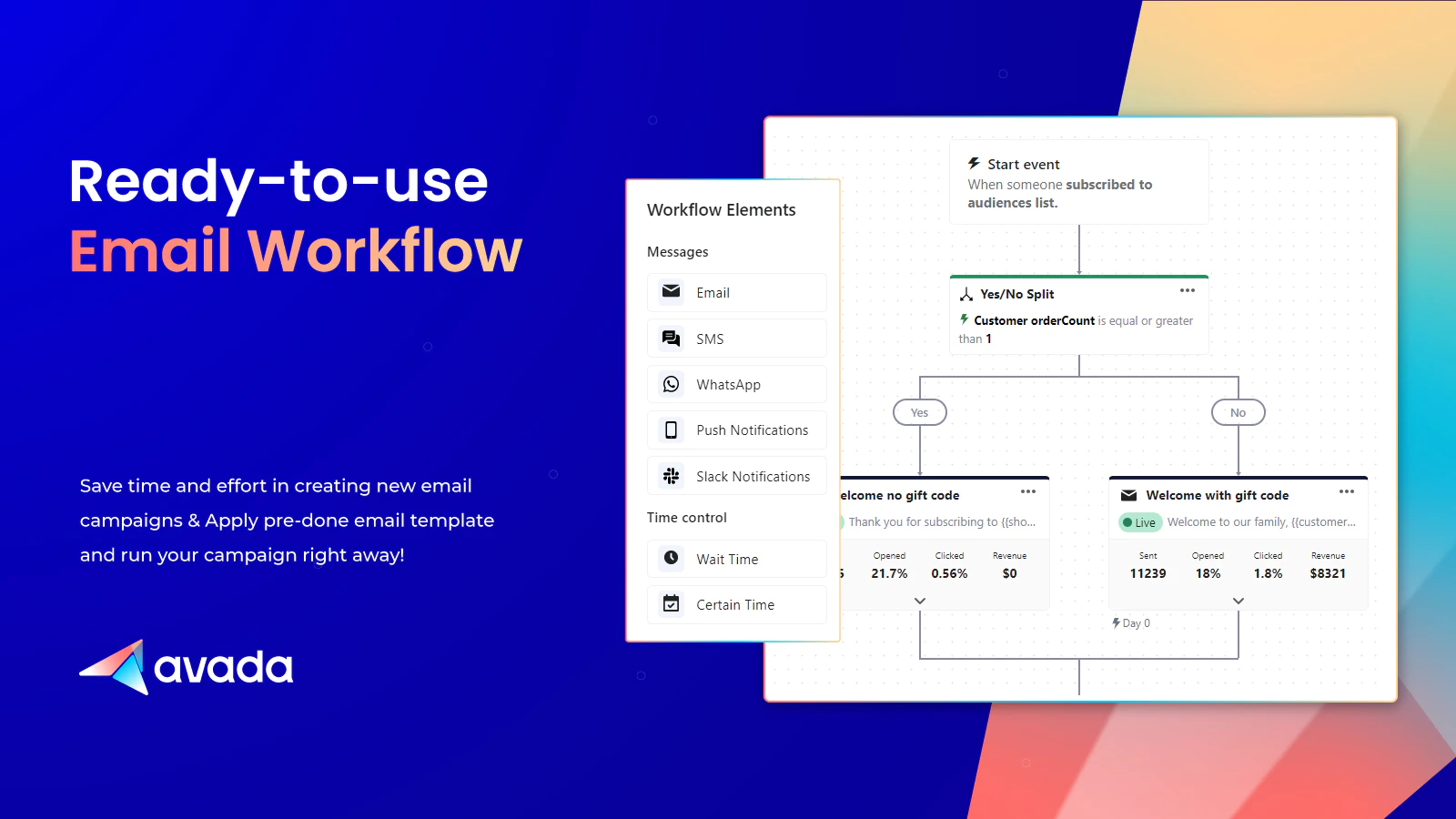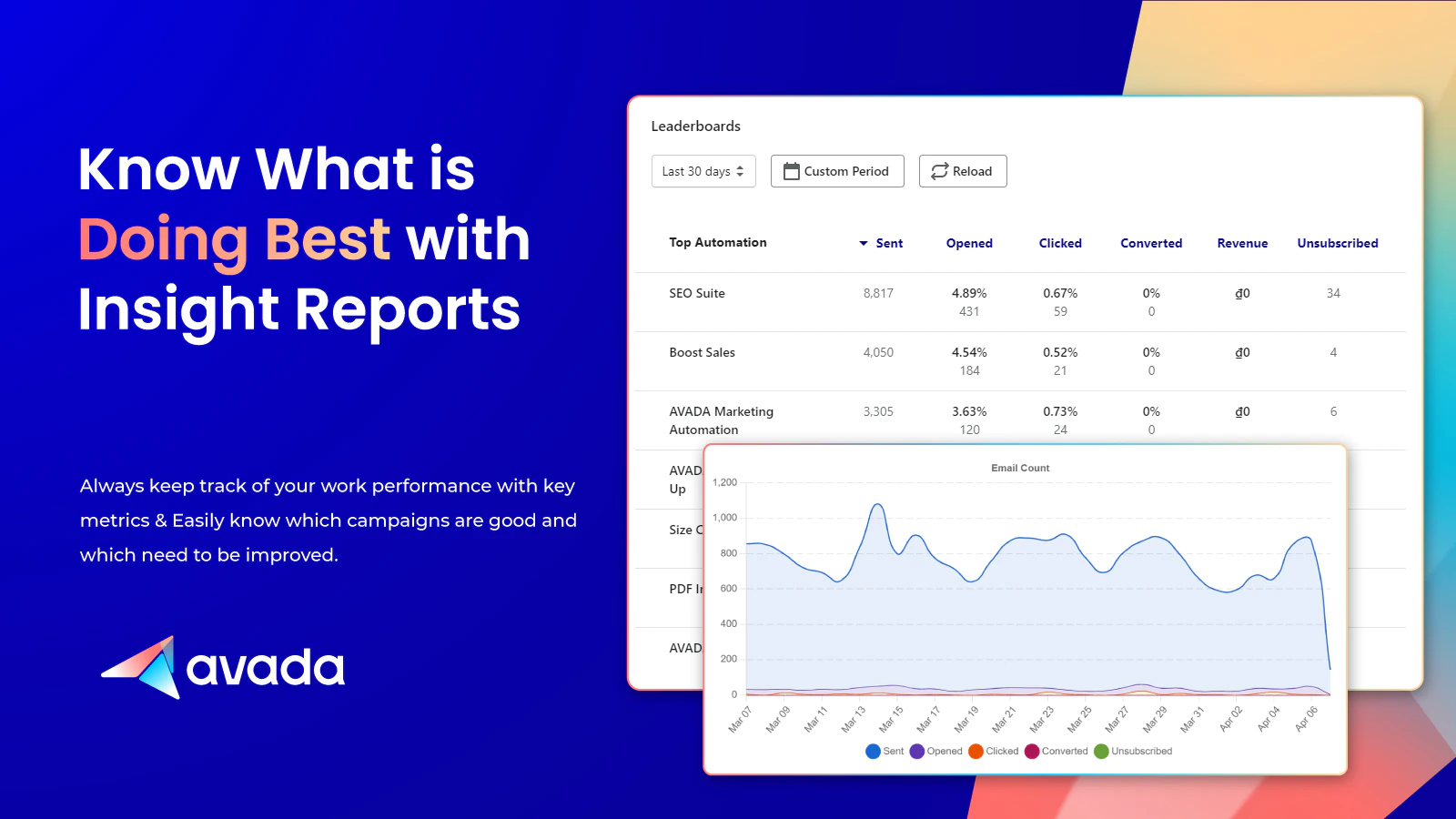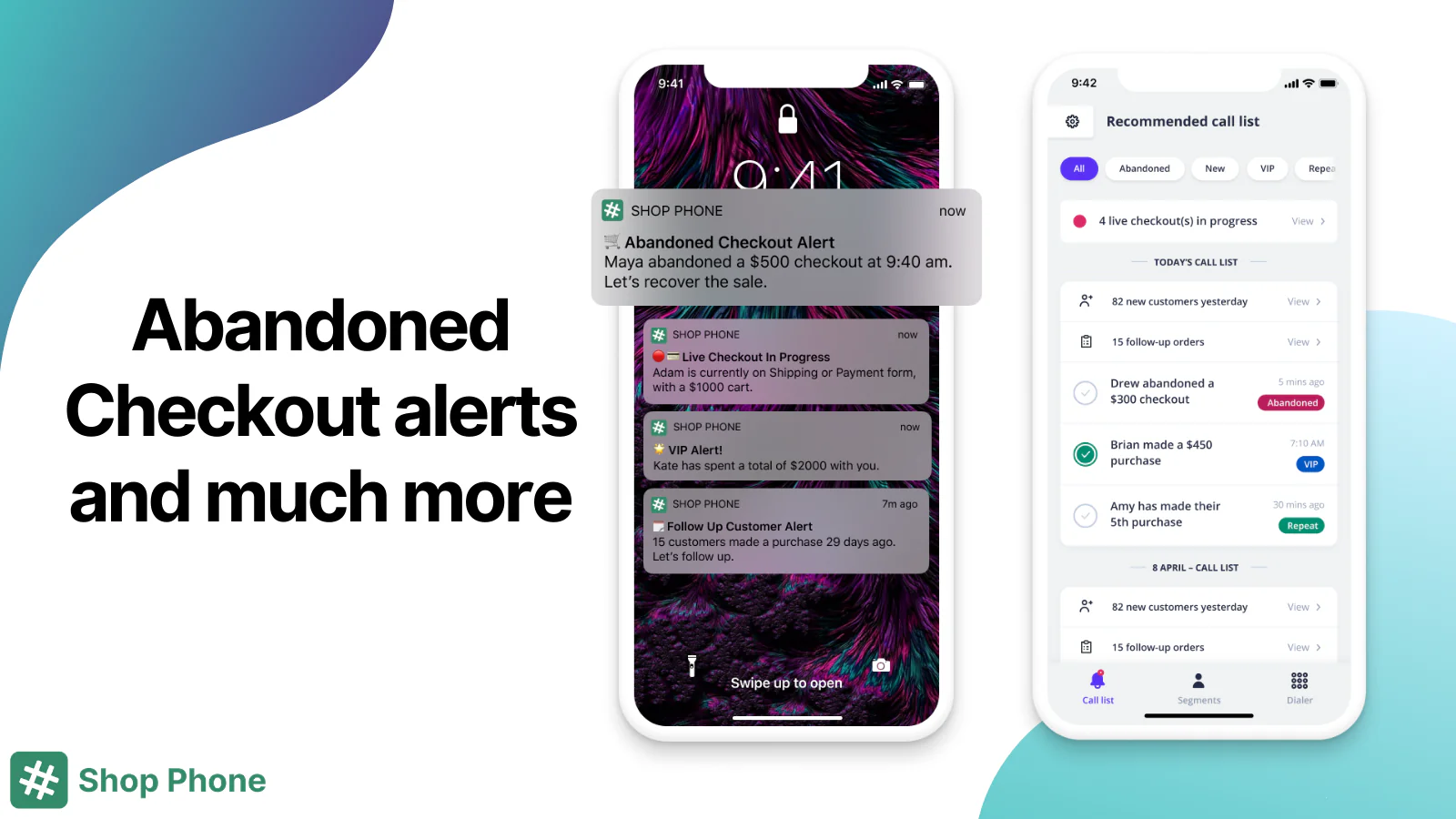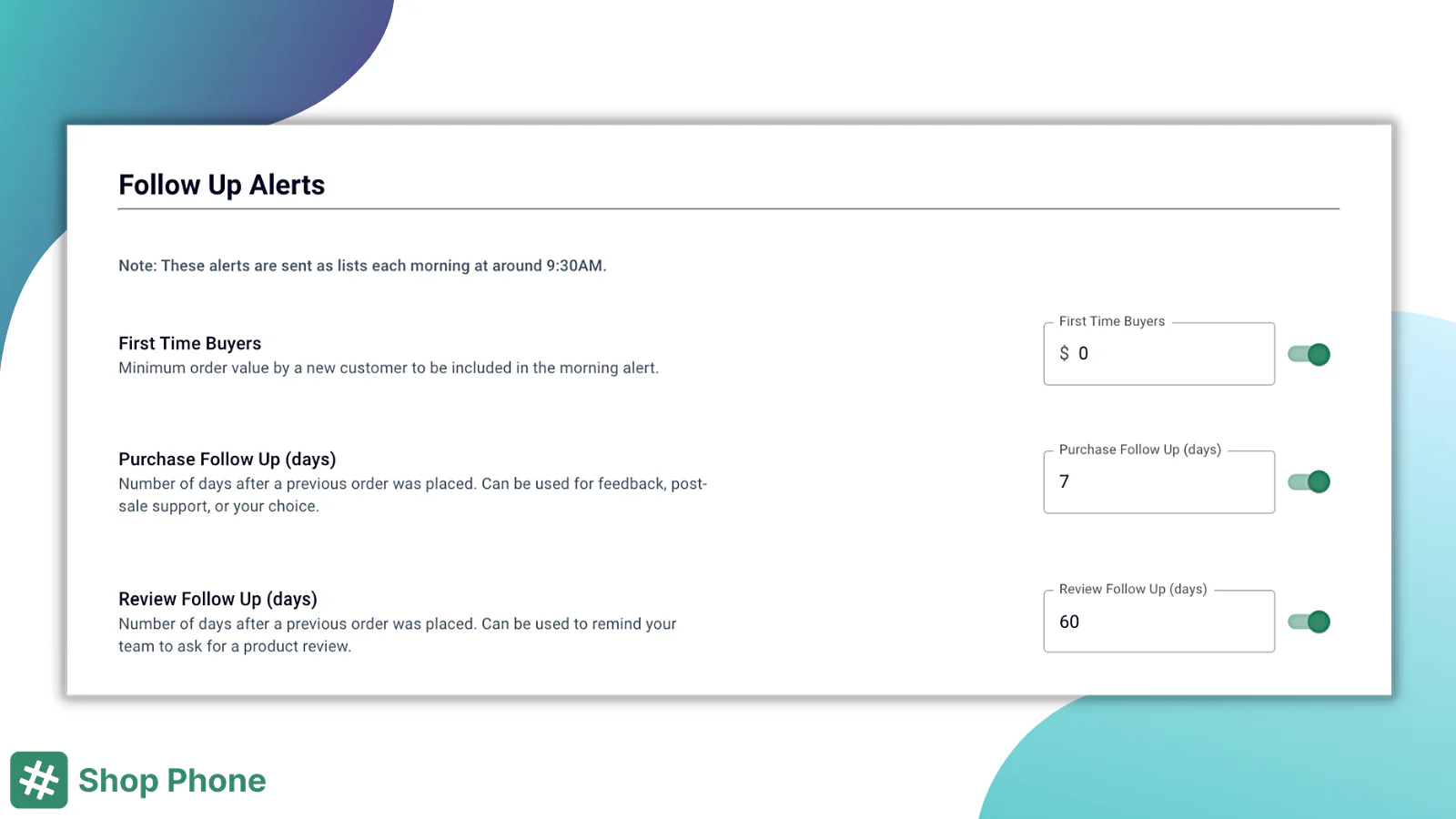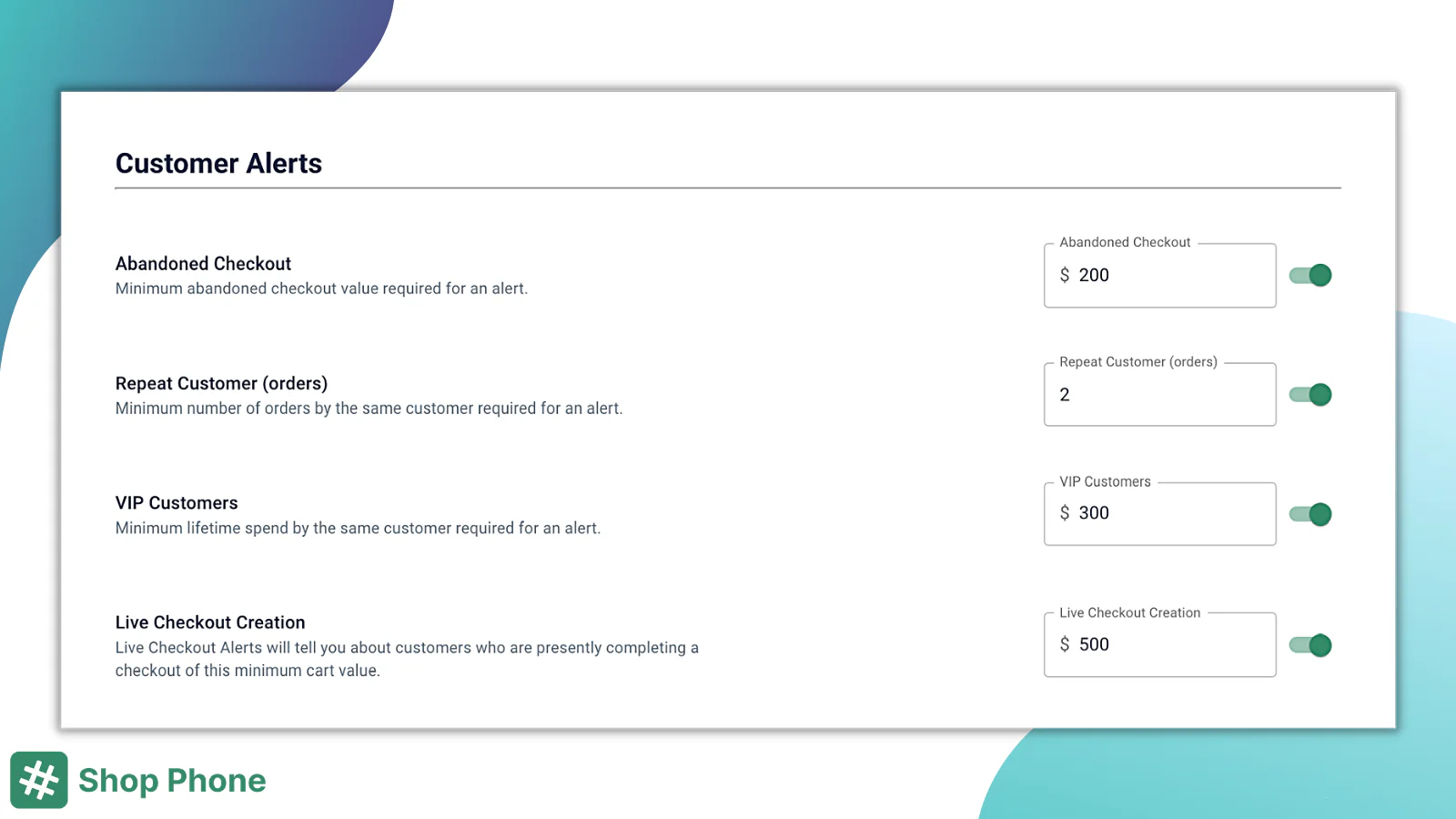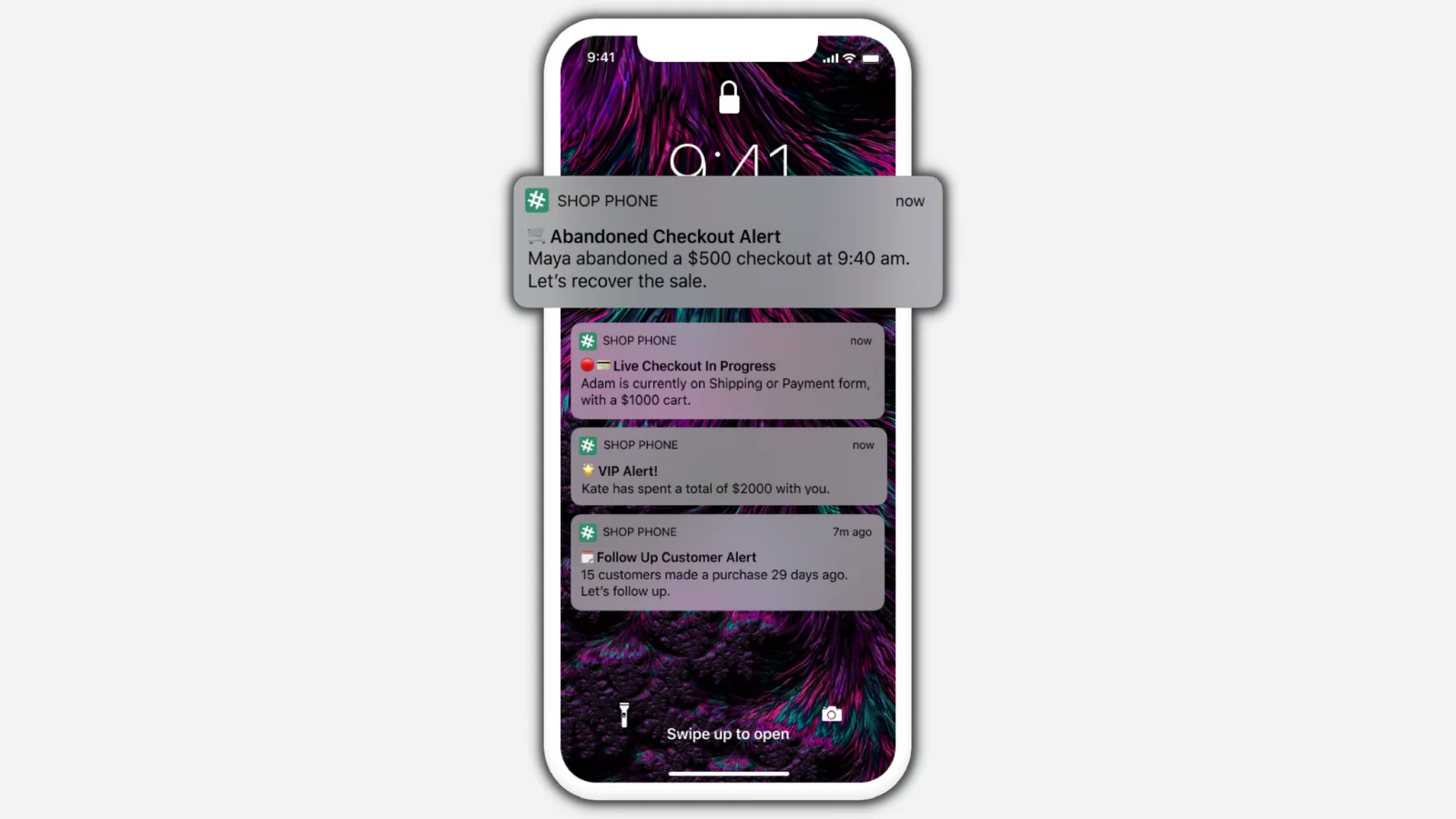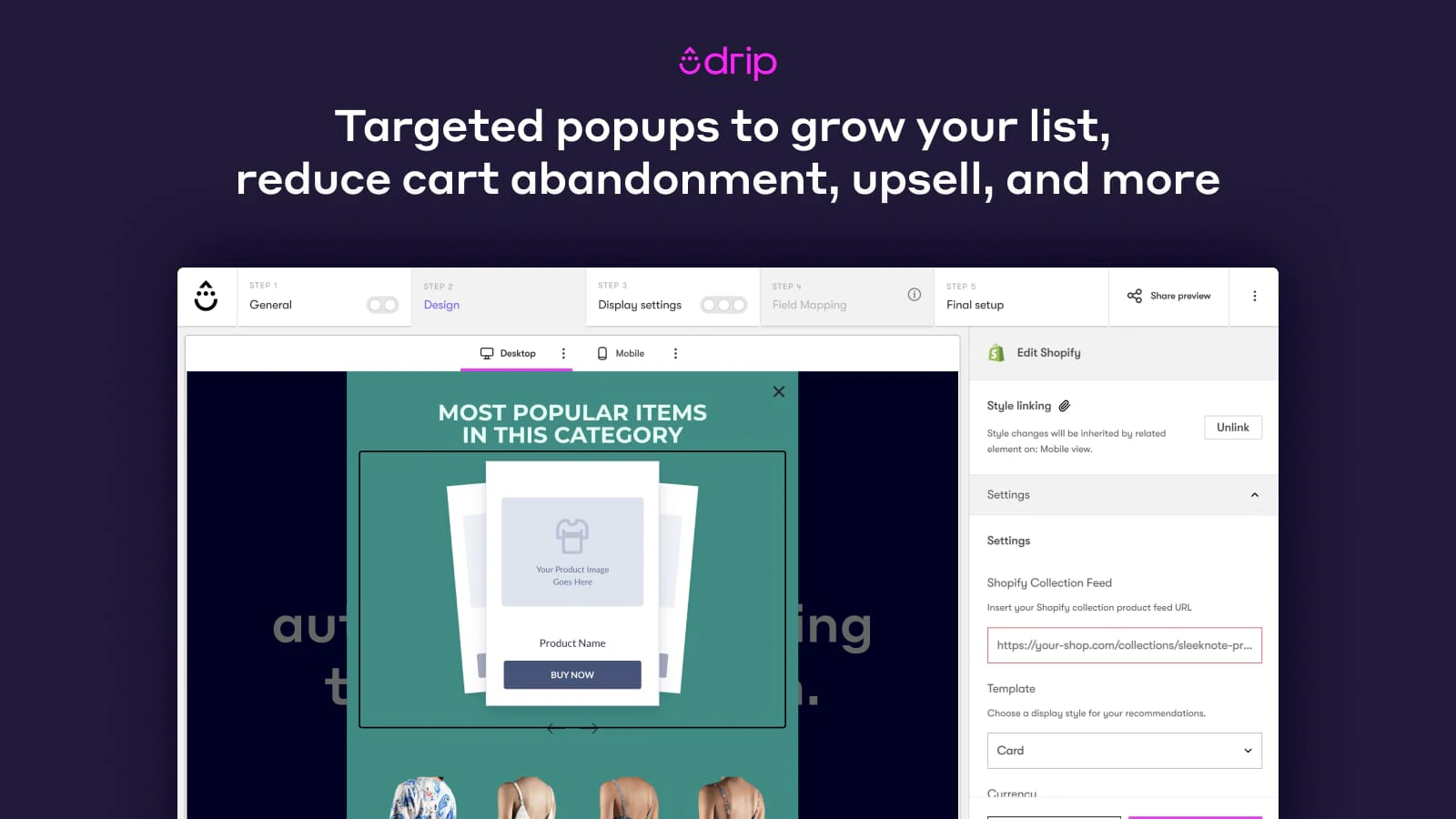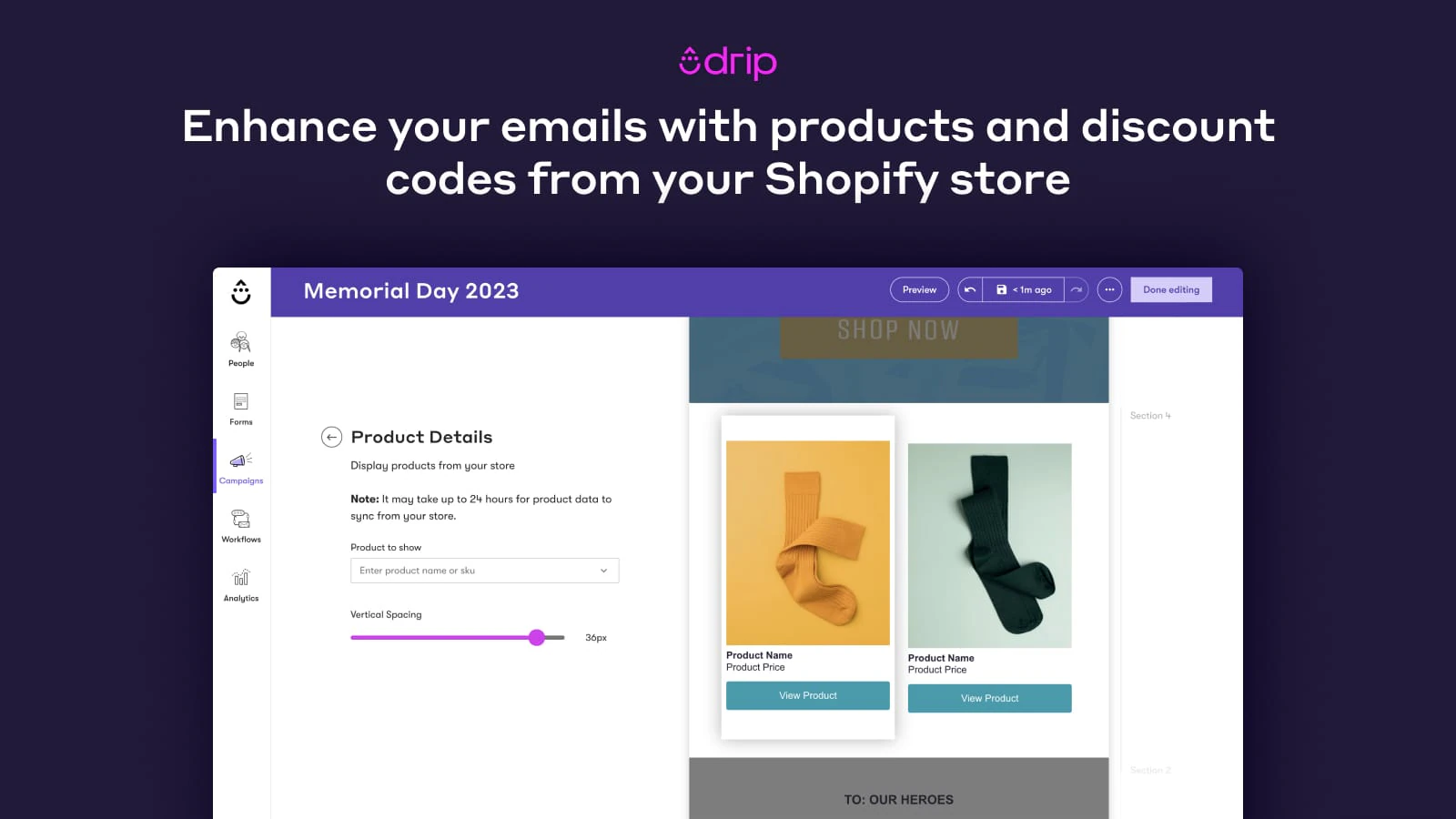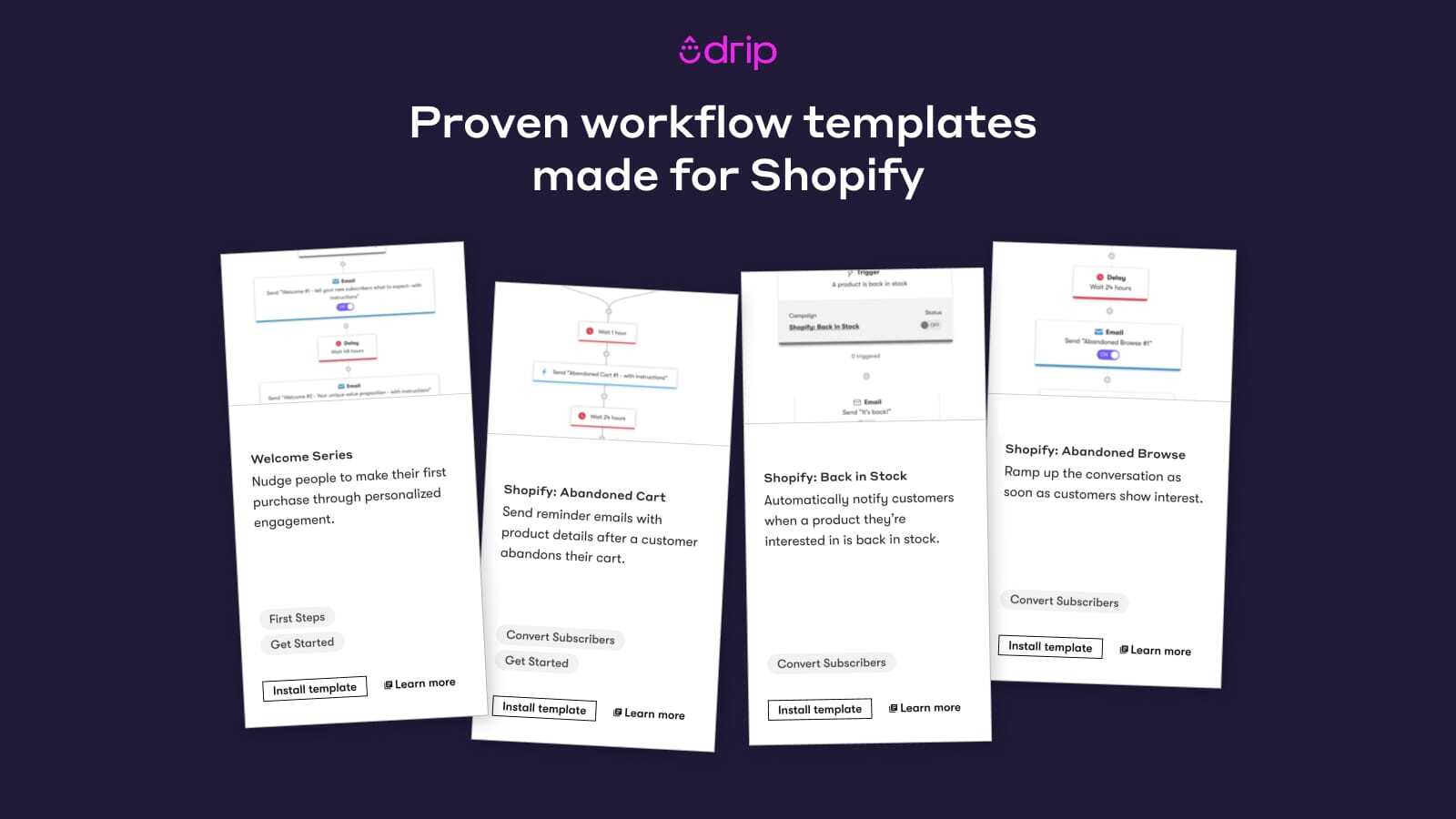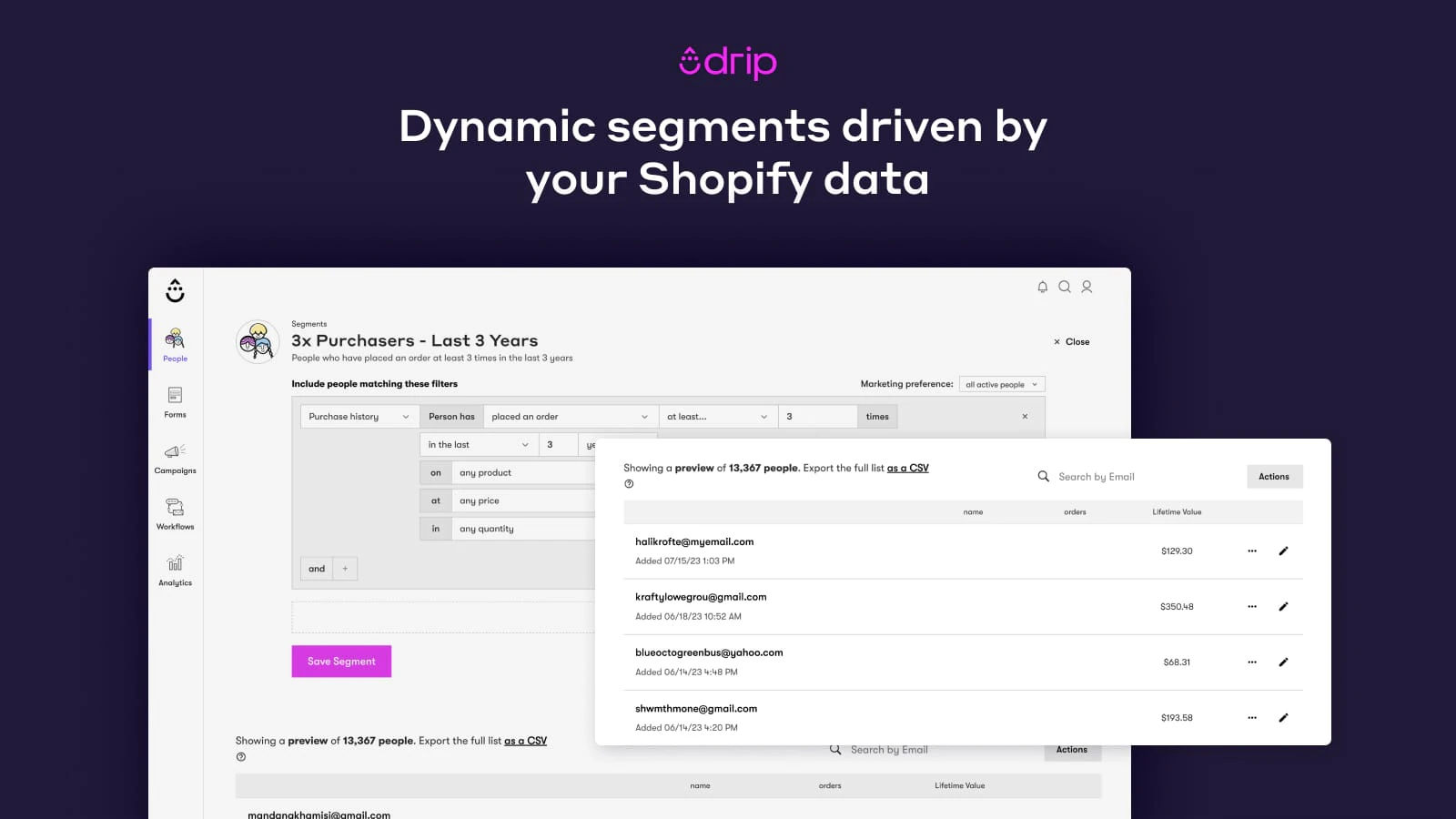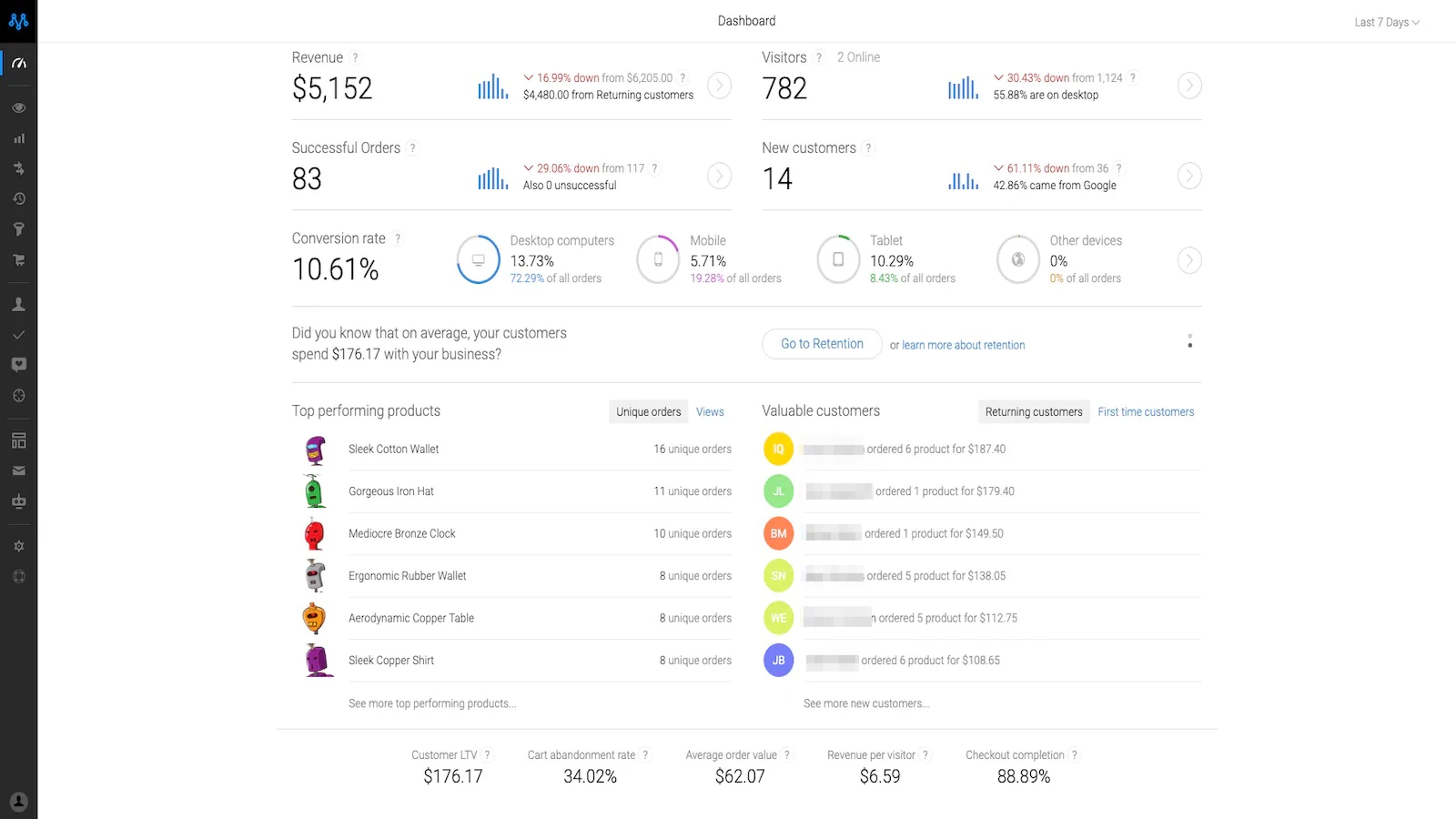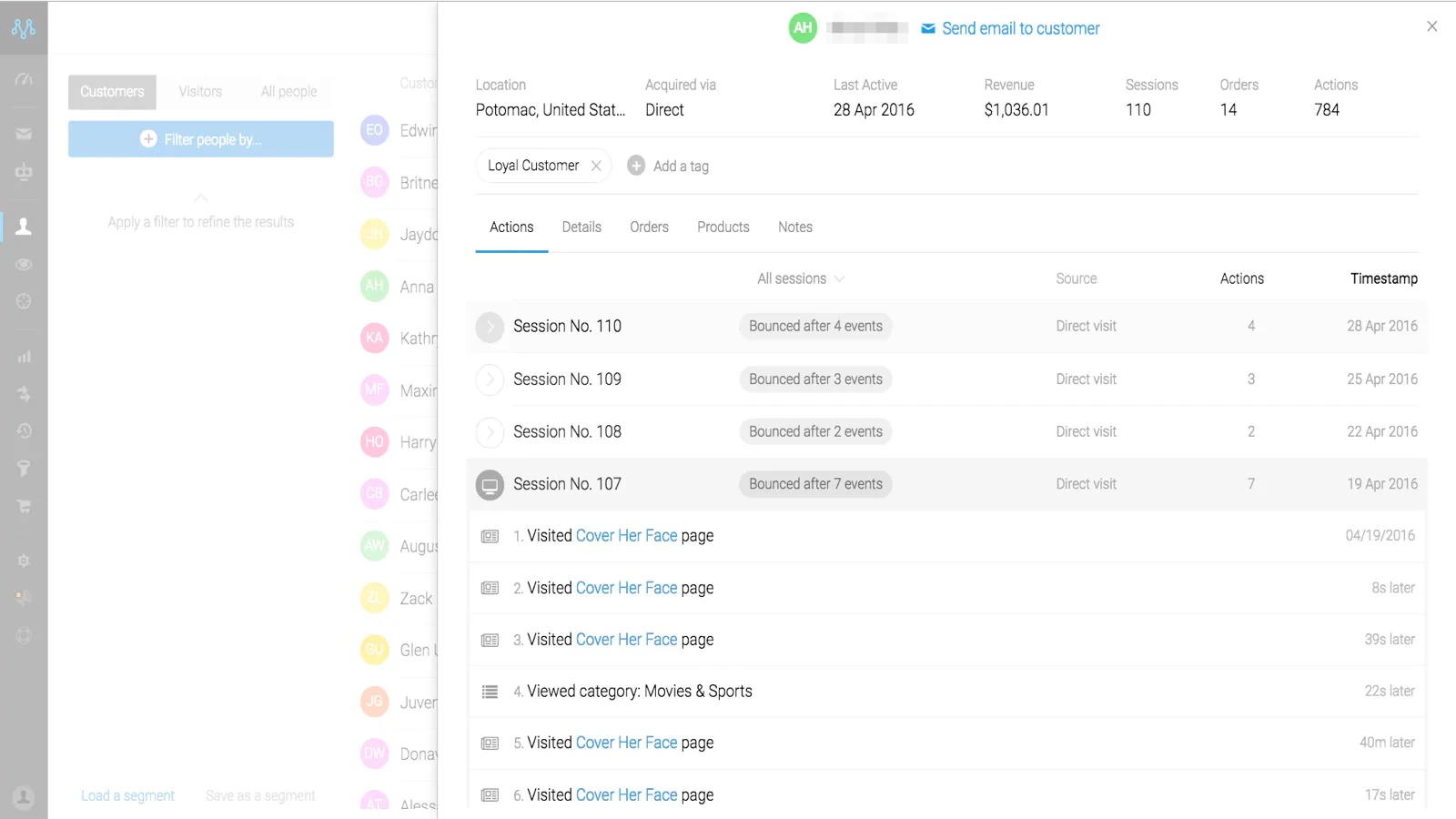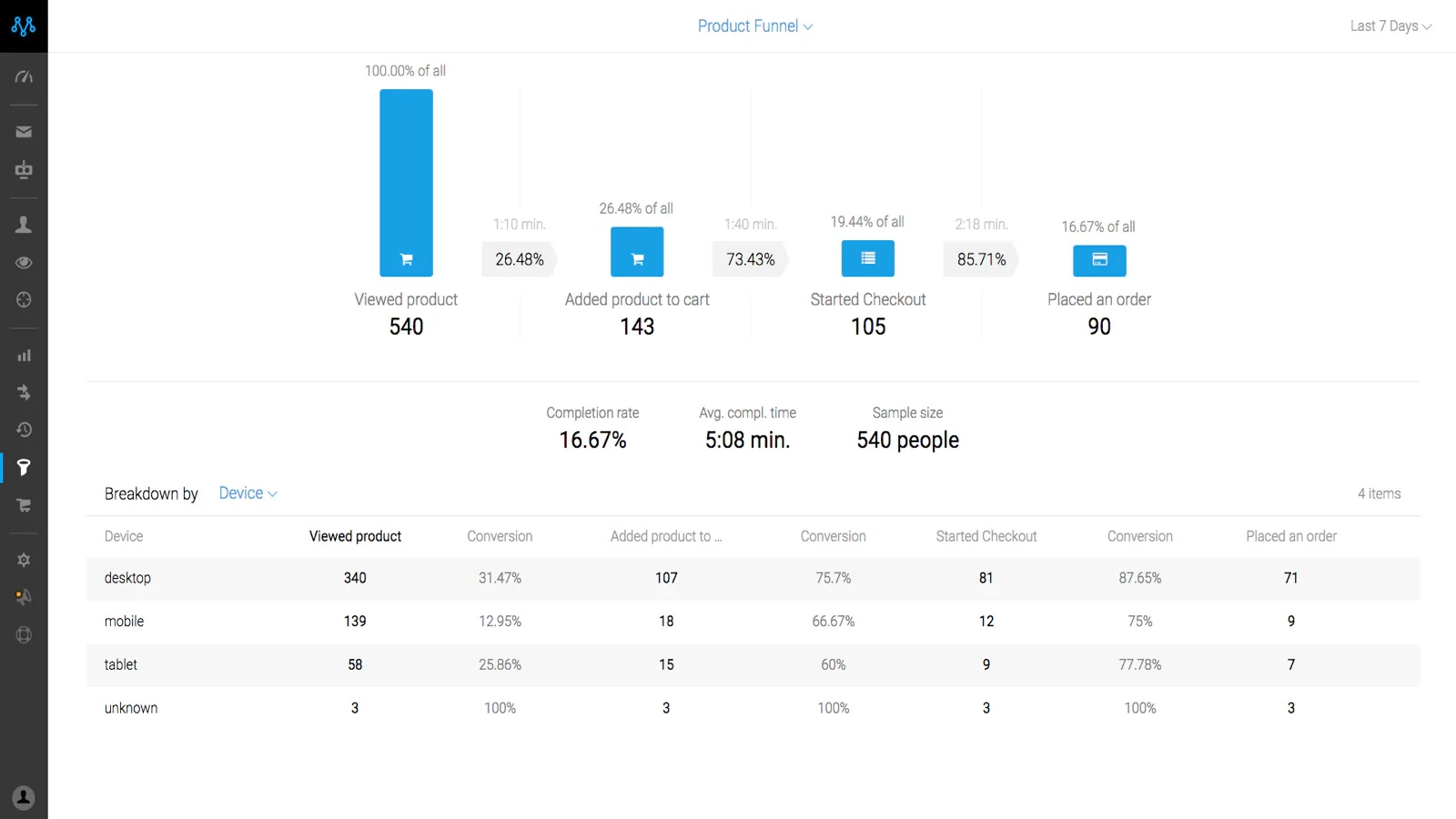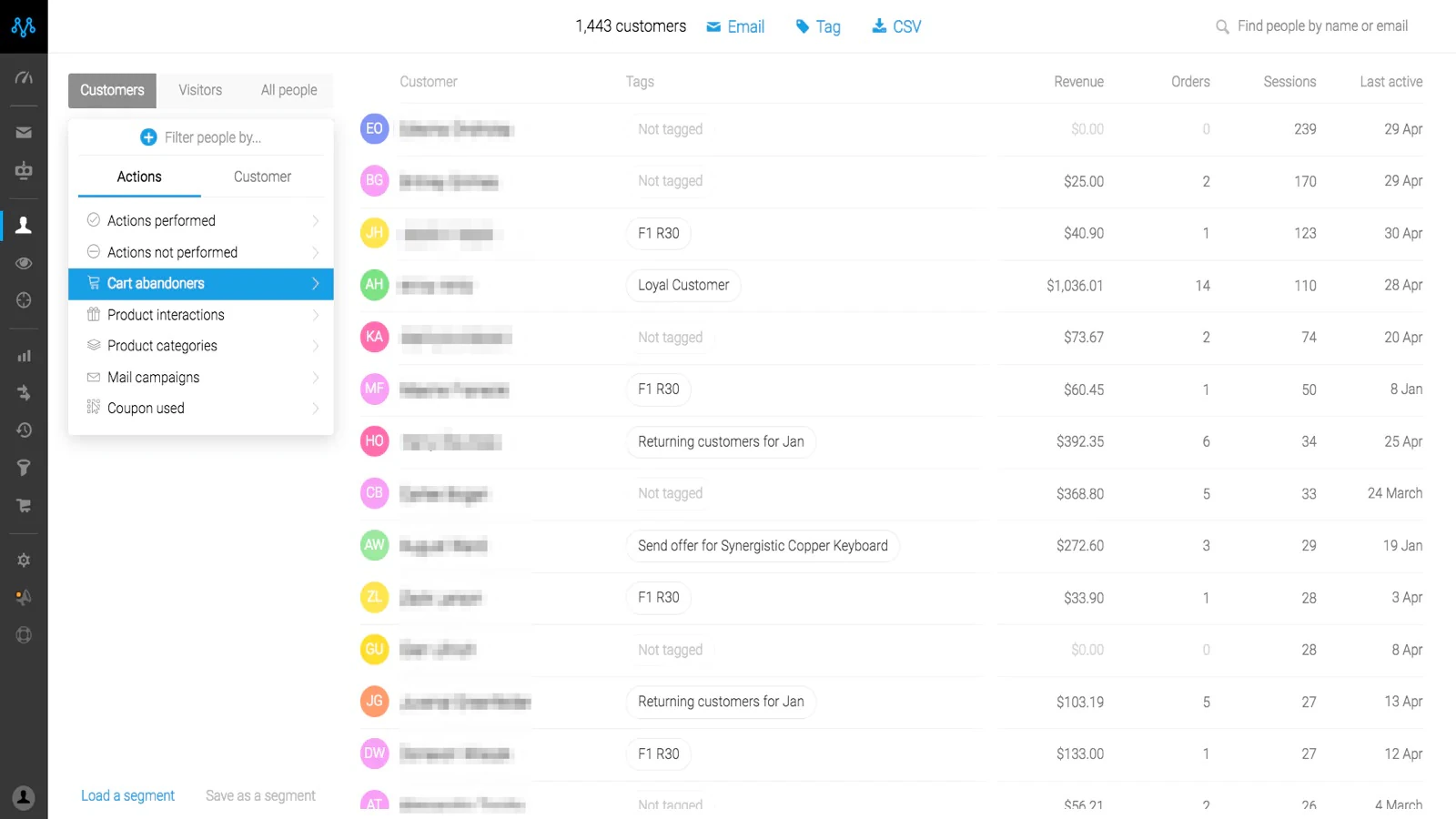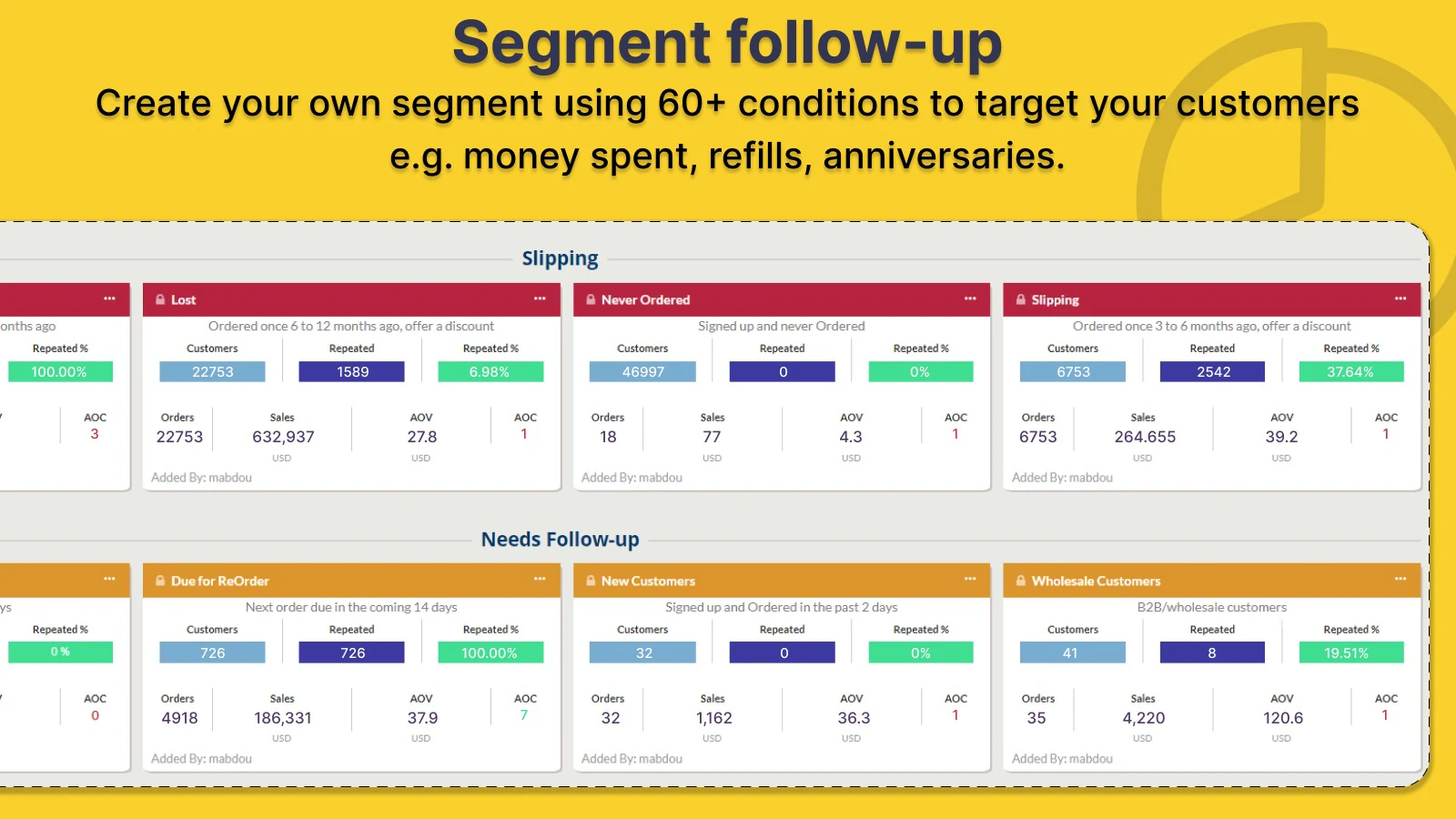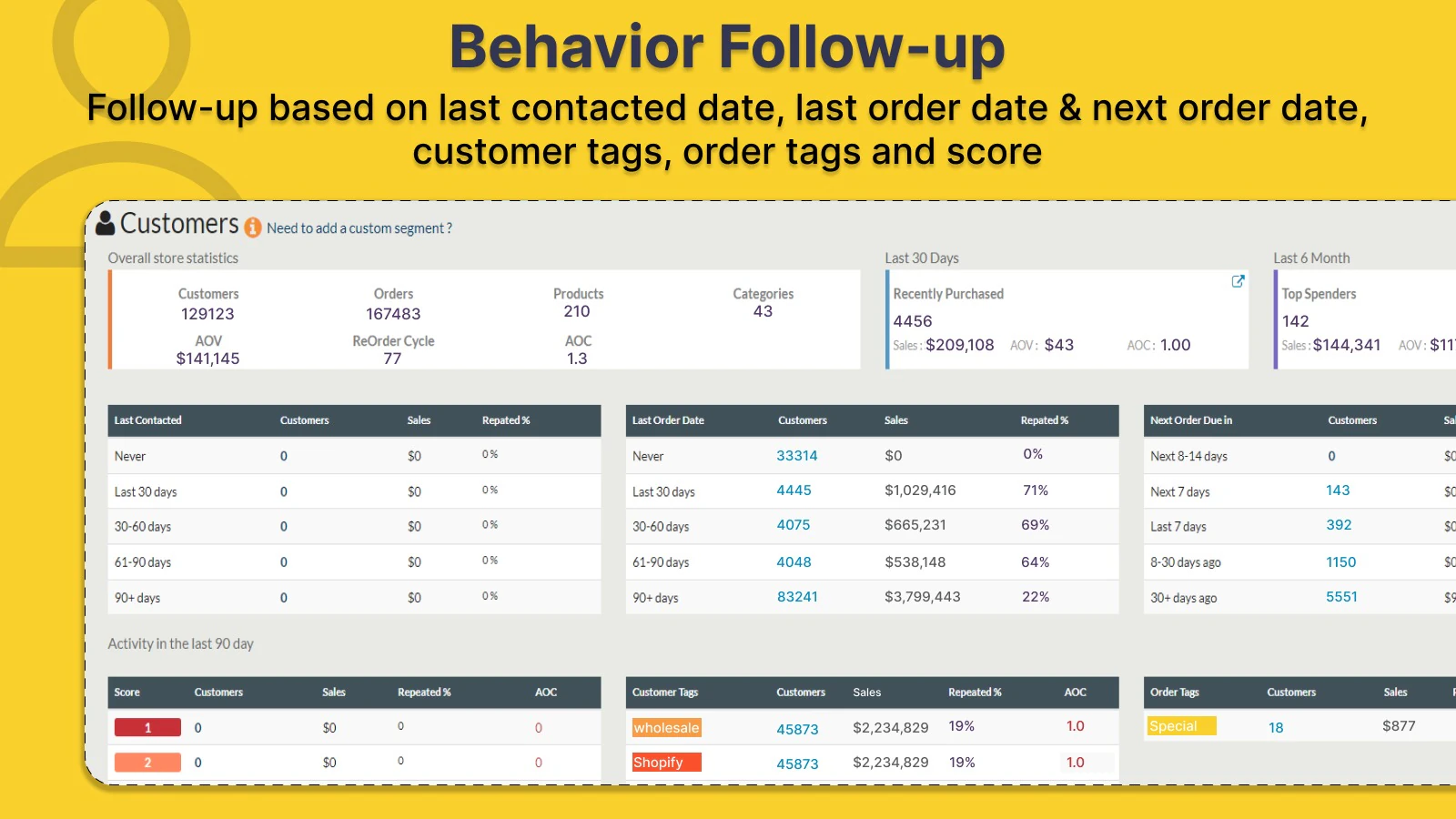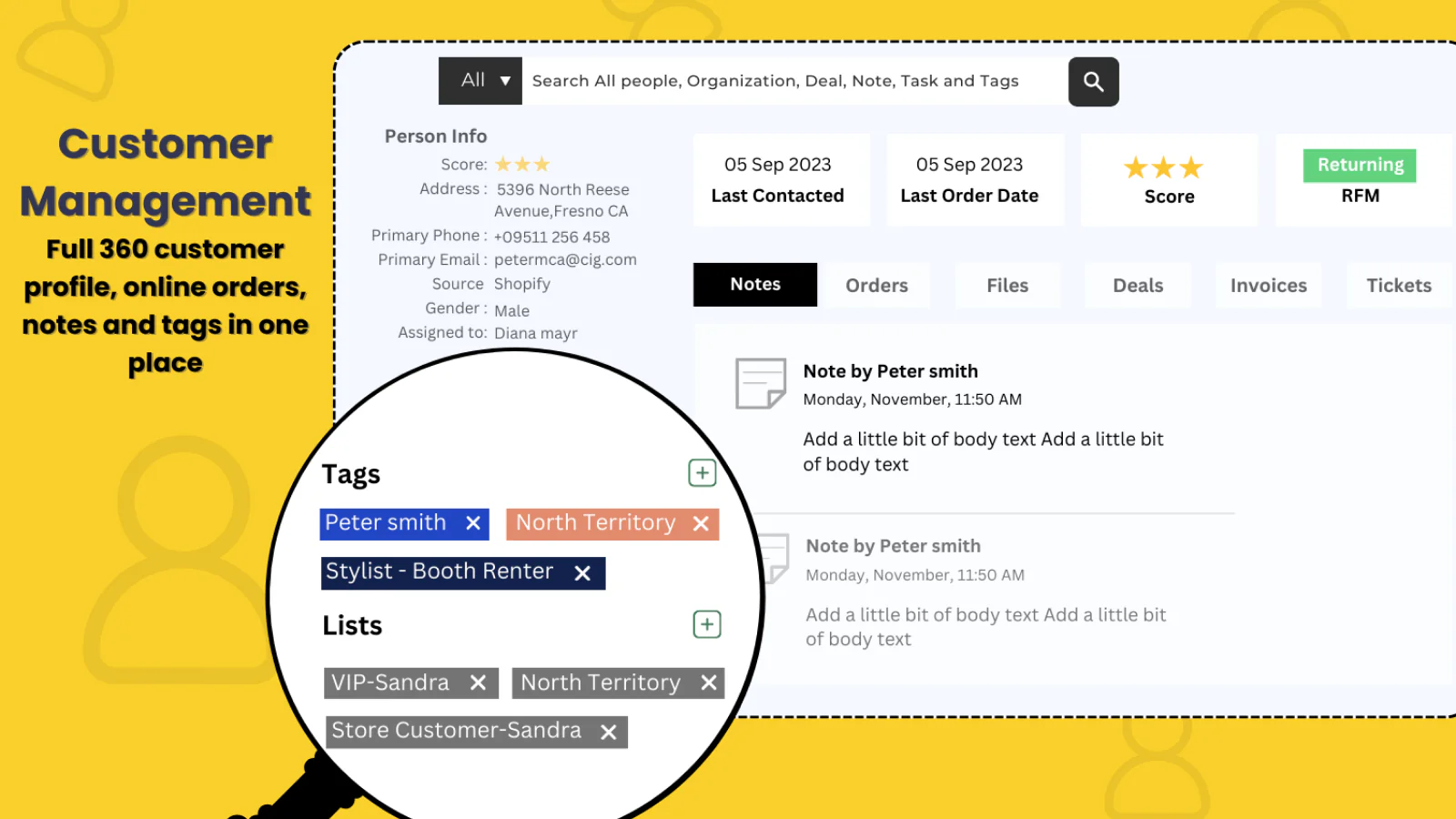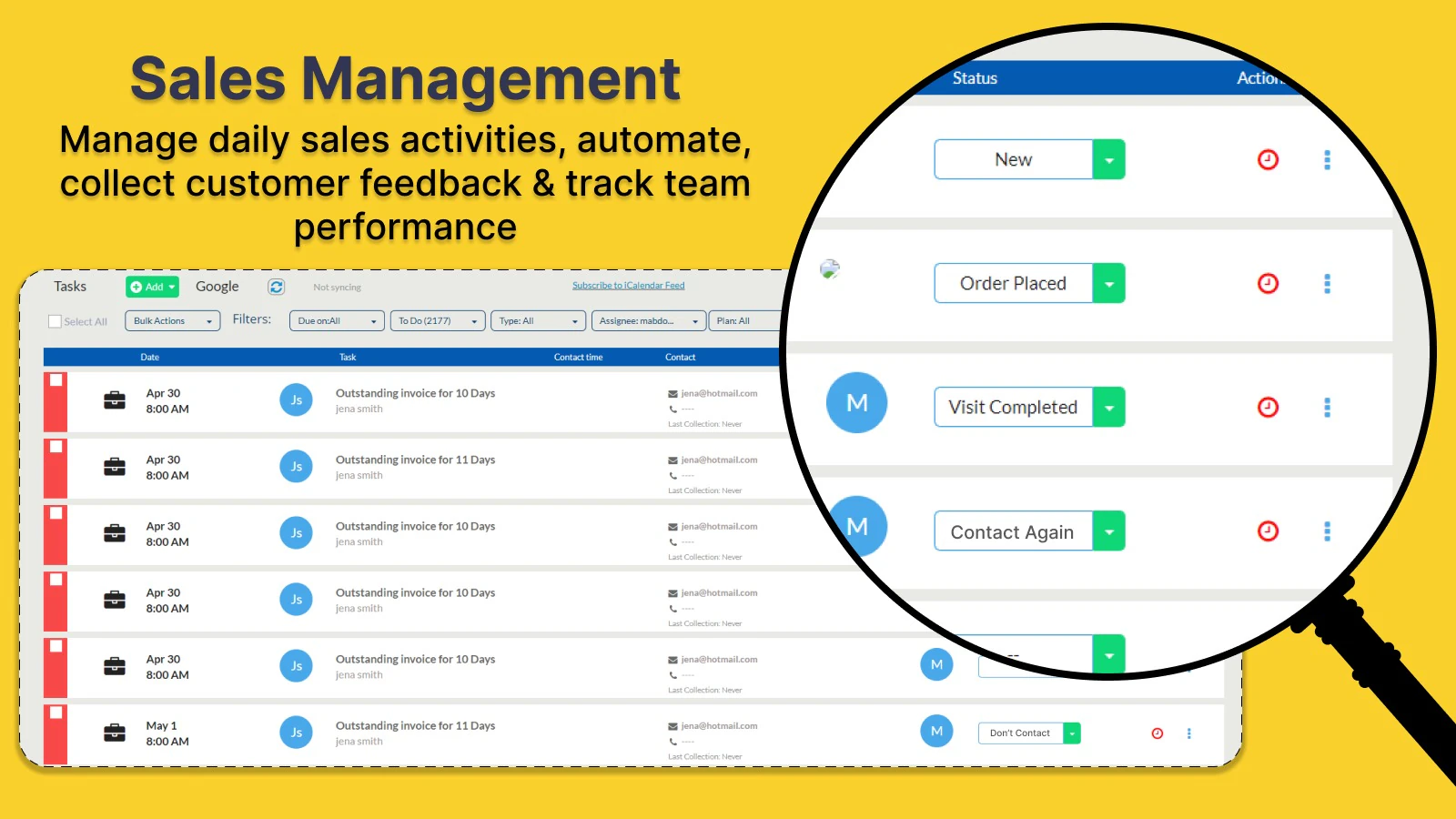Top 5 Best Shopify CRM Apps [March, 2025]
This guide helps ecommerce store owners to compare and find the best CRM apps for Shopify. CRM apps are popular for ecommerce businesses that want to a way to notify their customers when products are back in stock. However, with the variety of Shopify apps for CRM, it can be challenging to find the ideal app for store owners’ individual needs.
To help ecommerce store owners make the right choice, the attributes of available Shopify apps have been assessed considering: features, price, free trial availability, app store rating and free app options.
This guide compares five companies for merchants to review and find the optimal CRM app for their needs. To help them make an informed decision, a quick comparison table of the best CRM Shopify apps is shared below, followed by in-depth reviews and frequently asked questions.
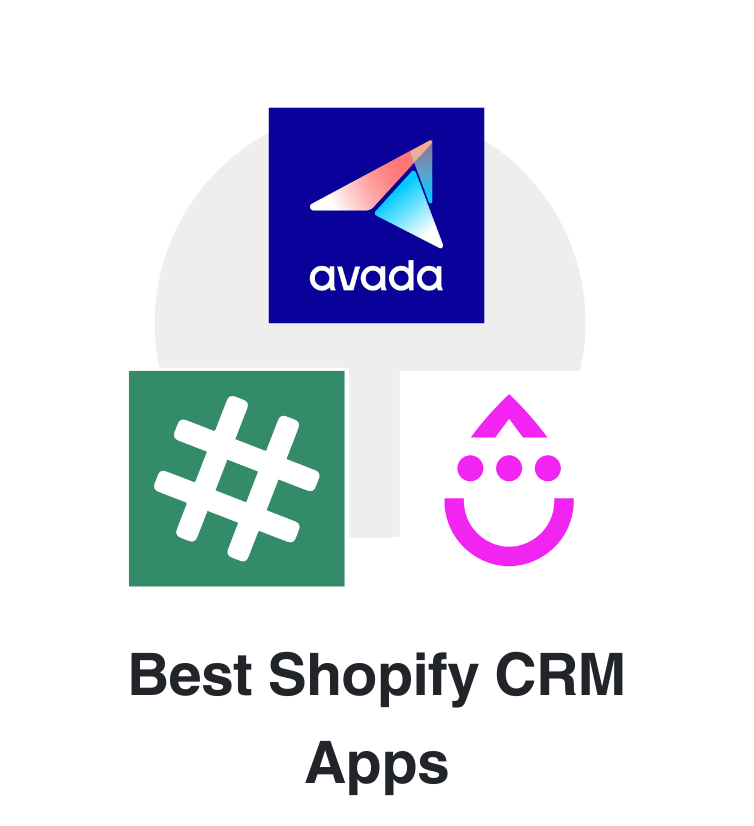

Free Guide: How To Find A Profitable Product To Sell Online
Excited about starting a business, but not sure where to start? This free, comprehensive guide will teach you how to find great, newly trending products with high sales potential.
Quick comparison of the best Shopify CRM apps
| # | App Name | Developer Name | Pricing | Rating | Free Trial | Image | Action |
|---|---|---|---|---|---|---|---|
| 1 | Avada Email Marketing & SMS | Avada | $16/month | 4.9/5  |
no |  |
Get app |
| 2 | Shop Phone Alerts & Auto Email | HMS Commerce | $9/month | 4.6/5  |
no |  |
Get app |
| 3 | Drip: Email Marketing & Popups | Drip | $39/month | 4.6/5  |
yes |  |
Get app |
| 4 | Metrilo Growth Platform | Metrilo | $119/month | 5.0/5  |
yes |  |
Get app |
| 5 | Revamp CRM for B2B wholesale | Revamp | $9/month | 2.6/5  |
yes |  |
Get app |
Top Shopify CRM apps reviewed
Table of contents:
How to Find The Best CRM Shopify App?
These five CRM apps for Shopify are ranked based on the following criteria:
- Features
- Price
- Rating on the Shopify app store
- Free trial availability
- Free app options
- Compatibility with other top apps
- Number of apps the app provider operates
- Pros and cons
- Built for Shopify badge
- Reviews and assessment by AcquireConvert
What are Shopify CRM apps?
What is the best way to send a CRM notification to customers?
Do CRM convert to sales?
Yes, CRM systems can effectively convert to sales. By centralizing customer data and tracking interactions, CRM systems enable businesses to understand customer behavior better and personalize their marketing efforts. This understanding and personalization lead to higher customer engagement and improved sales conversions.
CRM systems facilitate targeted marketing campaigns. By segmenting customers based on their preferences and purchase history, businesses can send tailored promotions and offers, which are more likely to resonate with customers and drive sales. For example, sending a personalized email to a customer with product recommendations based on their past purchases can significantly increase the likelihood of a sale.
Automated follow-ups are another way CRMs contribute to sales. CRM systems can automate email and SMS campaigns, such as sending reminders about abandoned carts or following up after a purchase with cross-sell and up-sell opportunities. These automated touchpoints keep the brand top-of-mind for customers and encourage repeat purchases.
Additionally, CRM systems provide valuable insights through analytics and reporting tools. These insights help businesses identify trends, measure campaign effectiveness, and optimize their sales strategies. Understanding what works and what doesn’t allows businesses to refine their approach and improve their sales tactics.
In summary, CRM systems enhance customer relationship management, enable targeted and personalized marketing, automate follow-ups, and provide actionable insights, all of which contribute to increased sales. For more detailed information, exploring various CRM apps available on the Shopify App Store and user reviews can provide additional insights.
Conclusion: Best Shopify CRM Apps
It requires time and effort to compare and evaluate features of the various different CRM Shopify apps to find the ideal option.
Shopify store owners must evaluate relevant information to make the optimal choice for their needs.
This guide does the challenging work for merchants by comparing and evaluating the top choices for different CRM Shopify apps. The results of our analysis of the best CRM Shopify apps are listed below:

